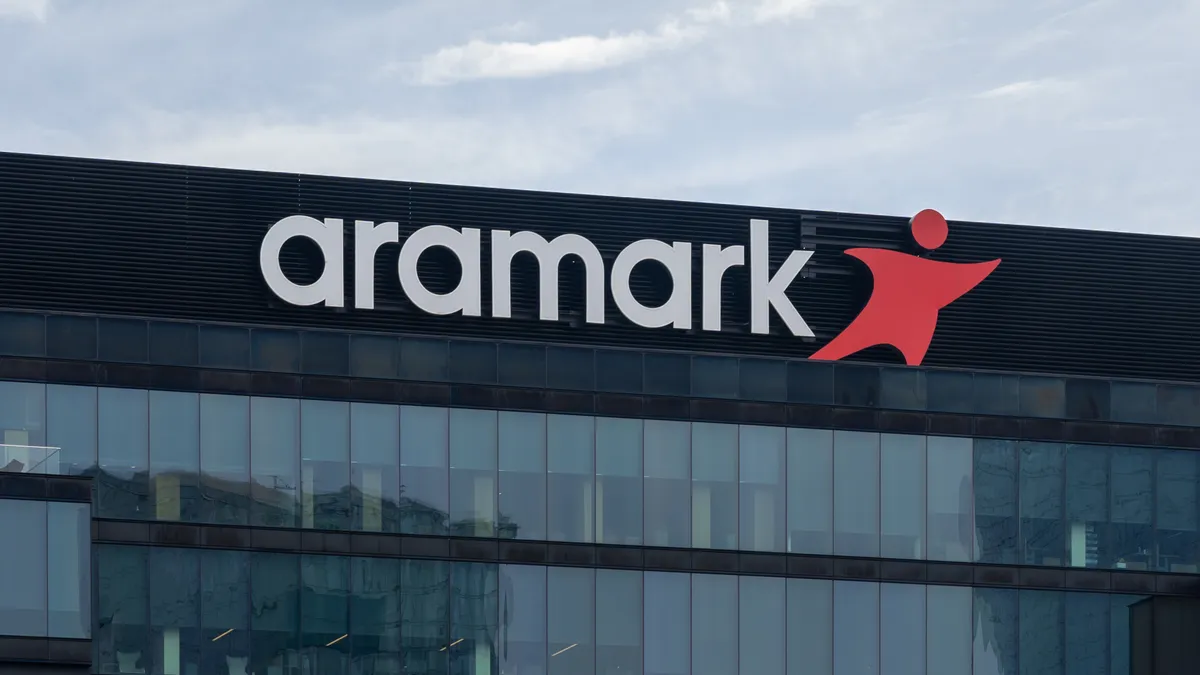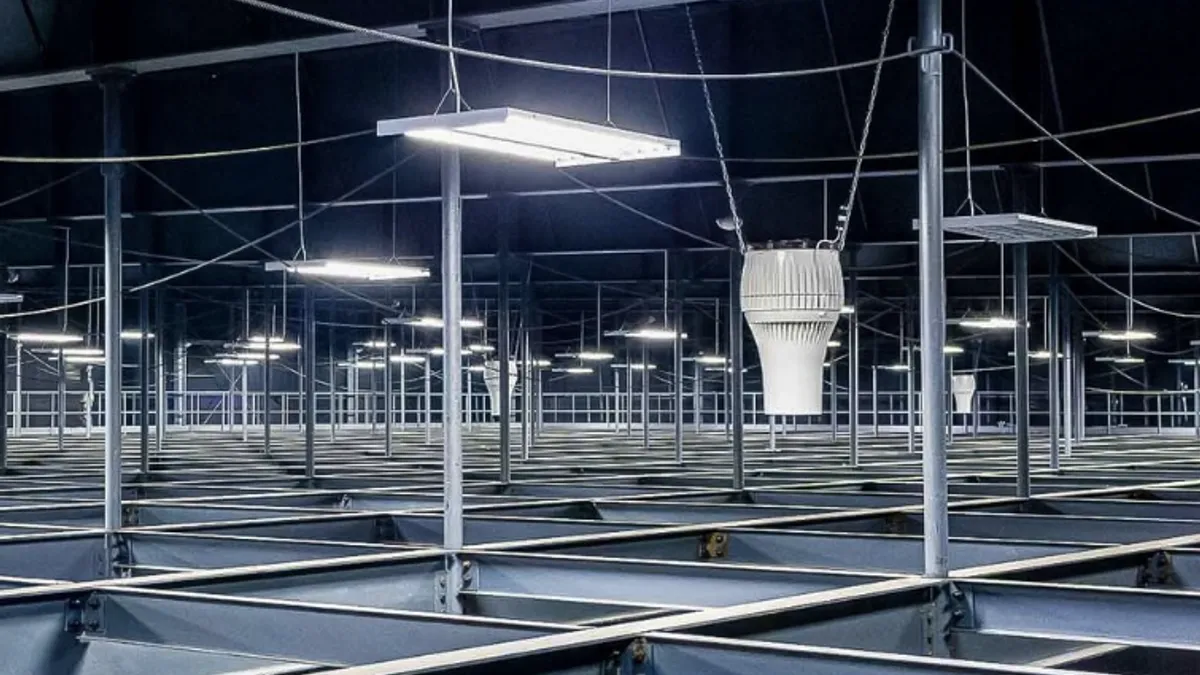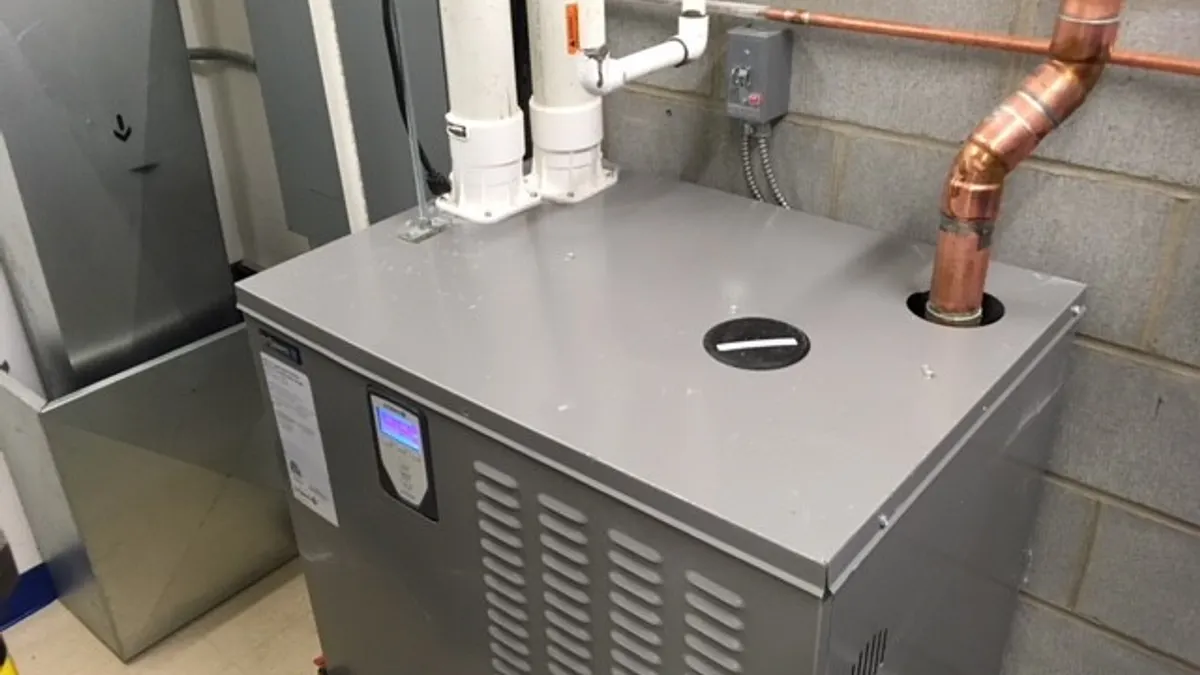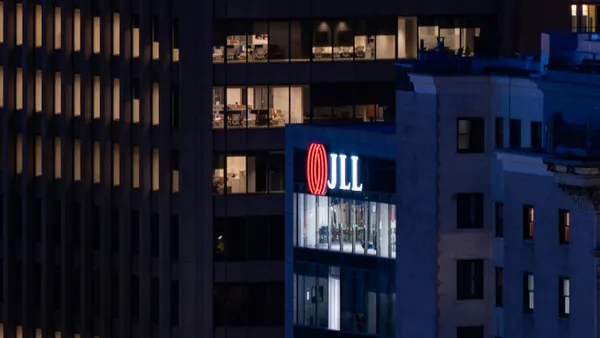Notable food service companies saw revenue improve in fiscal year 2024, with Compass Group, Aramark and Sodexo all reporting high mid-digit to double-digit year-over-year organic growth, according to their earnings reports.
These food service firms partially attributed revenue increases to return-to-office trends and sports venue contracts, stating plans to further invest in technology that can drive efficiencies. Compass Group CEO Dominic Blakemore said his company will balance continued growth with appropriate investment levels to offer “more technological innovation in our business model [and] in our offer.” Meanwhile, Sodexo is moving its business to the cloud and embedding artificial intelligence into its core operations, “anchoring it as a critical component of our business processes to enhance decision-making, automate workflows and drive smarter data-driven strategies,” CEO and Chairwoman Sophie Bellon said on an earnings call.
Here’s a look at how each company fared in its fiscal fourth quarter and full year earnings.
Compass Group sees more growth ahead
Compass Group increased full fiscal-year revenue by 10.6% year over year to $42.2 billion for the period ended Sept. 30, alongside a 16.4% jump in operating profits, with its operating margin increasing by 30 basis points to 7.1%, the company reported Nov. 25.
Compass Group employs 580,000 employees worldwide, according to its website. Its food services contracts accounted for about 86% of group revenue, while support services contributed the remaining 14%, according to the company’s 2024 presentation released Tuesday.
The U.S. represented 65% of Compass Group’s fiscal year 2024 revenue and organically grew 10.5% year-over-year to $28.58 billion. Business and industry made up 35% of the company’s 2024 North America fiscal year revenue, followed by healthcare and senior living at 28%, education at 21%, and sports and leisure at 15%, the company said.
“Our business in North America remains as attractive as ever. There's a significant runway for growth across all of our sectors and the market dynamics are favorable. Our strong offer, flexible operating models and further sub-sectorization are fueling this sustained growth,” Blakemore said on an earnings call Tuesday. He pointed to the possibility of a “bit more inflation” in the U.S. and the U.K., going forward. “That gives us the right to price, and we think that's helpful to our business model,” Blakemore said.
Aramark grows first time outsourcing
In fiscal year 2024, Aramark grew organic revenue about 10% year over year to $17.4 billion, enjoying a 7.3% spike in U.S. revenue to roughly $12.58 billion through Sept. 27, the company said in its earnings report released Nov. 11. Adjusted operating income for Aramark’s food and support services segment in the region grew over 13% year over year to $774 million in the fourth quarter, while its adjusted operating income and adjusted organic revenue growth climbed 5.1% and 3.6%, respectively, during that period, per the company’s earnings presentation.
On an earnings call last month, Aramark CEO John Zillmer said organic revenue growth for the company’s food and support services FSS segment in the U.S. was primarily from “record based business volume and pricing.” The FSS U.S. segment’s revenue growth was led by sports and entertainment from higher per capita spending and strong fan attendance in stadiums, according to its earnings report.
In the fourth quarter, organic revenue in the FSS U.S. segment increased 4% “as pricing began to normalize with improving inflation, particularly in education,” Zillmer said. “Strong per-capita spending and high fan attendance levels continued in sports and entertainment, along with increased participation rates in workplace experience and retail expansion in corrections, more than offset facilities.”
Aramark’s business pipeline across the organization remains substantial, including in first time outsourcing, with “several large opportunities leaking into fiscal 2025,” Zillmer added, noting that the company added Broward Health Medical and Mastercard as its clients in the first six weeks of its 2025 fiscal year.
Sodexo invests in tools to support return to office, attract workers
Sodexo was recently reported to be exploring the acquisition of Aramark. On an earnings call in October, Sodexo CEO and Chairperson Sophie Bellon put those rumors to bed, noting that “there are no discussions with Aramark.”
The France-based food services and facilities management firm also had a successful fiscal year, reaching about $24.9 billion in revenue — an organic growth of 7.9%, according to its 2024 earnings presentation. North America revenue grew 8.7% organically year over year to roughly $11.65 billion, Sodexo reported. This growth was led by “a continued trickle of consumers returning to the office, more travelers in the airports, [and] an acceleration of net development,” Sodexo said in its earnings presentation.
Within its facilities management activities, Sodexo is investing in its expertise and digital tools to support large integrated clients, “who are seeking to enhance their consumer engagement, attract their employees back to the office, invest in smart buildings with reduced floor space and upgraded holistic services and progress on their sustainable journeys,” Bellon said.
Bellon noted that the firm is also integrating Internet of Things, AI and data analytics to enhance asset management, predictive maintenance and decision-making, which is driving efficiency.
Within North America, restated organic growth in Sodexo’s business and administration segment, excluding Sodexo Live!, reached 11.8% year over year, driven by contribution of new business, strong growth in food services and price adjustments. Sodexo Live!’s restated organic growth grew 23.4% to about $1.5 billion, driven by "robust activity [in] all venues, and in particular strong per capita spend in sports stadiums,” Sodexo said in its presentation. The company also pointed to strong growth in airport lounge activity also grew strongly with increased passenger count, added services and mobilization of new business.
Education revenue in North America organically grew 4.2% year over year to approximately $3.39 billion, benefiting from price increases as well as growth in meal count, retail and catering events, particularly in universities, according to the presentation. Sodexo’s convenience brand InReach is also seeing rapid growth through acquisition, sales synergies and strong consumer buy-in, and the company plans to roll out frictionless stores across U.S. stadiums, Bellon said.
The company’s food waste reduction “is also on track, cutting waste by 40.7% across sites,” Bellon noted.











